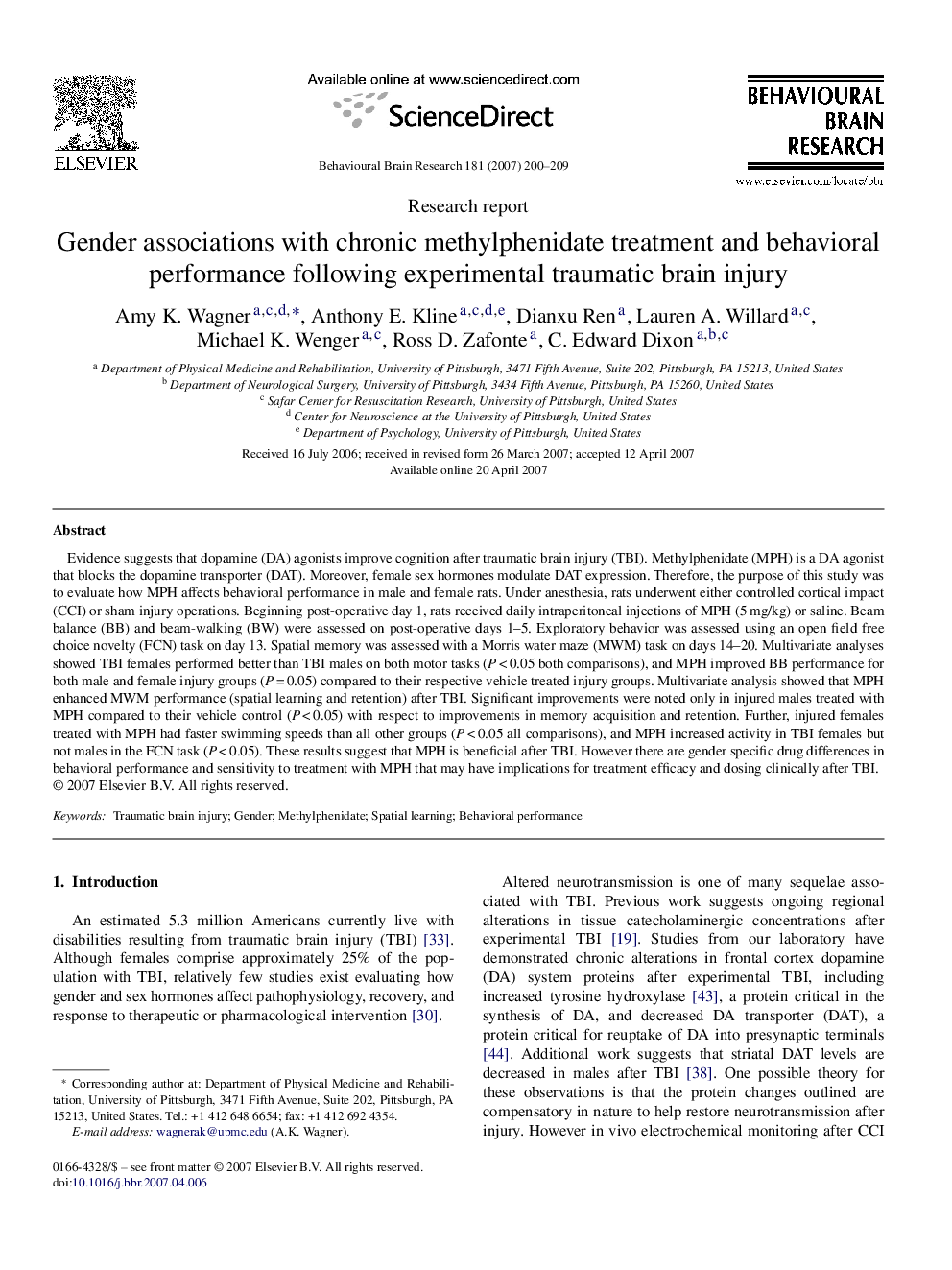| کد مقاله | کد نشریه | سال انتشار | مقاله انگلیسی | نسخه تمام متن |
|---|---|---|---|---|
| 4315604 | 1290087 | 2007 | 10 صفحه PDF | دانلود رایگان |
عنوان انگلیسی مقاله ISI
Gender associations with chronic methylphenidate treatment and behavioral performance following experimental traumatic brain injury
دانلود مقاله + سفارش ترجمه
دانلود مقاله ISI انگلیسی
رایگان برای ایرانیان
کلمات کلیدی
موضوعات مرتبط
علوم زیستی و بیوفناوری
علم عصب شناسی
علوم اعصاب رفتاری
پیش نمایش صفحه اول مقاله

چکیده انگلیسی
Evidence suggests that dopamine (DA) agonists improve cognition after traumatic brain injury (TBI). Methylphenidate (MPH) is a DA agonist that blocks the dopamine transporter (DAT). Moreover, female sex hormones modulate DAT expression. Therefore, the purpose of this study was to evaluate how MPH affects behavioral performance in male and female rats. Under anesthesia, rats underwent either controlled cortical impact (CCI) or sham injury operations. Beginning post-operative day 1, rats received daily intraperitoneal injections of MPH (5Â mg/kg) or saline. Beam balance (BB) and beam-walking (BW) were assessed on post-operative days 1-5. Exploratory behavior was assessed using an open field free choice novelty (FCN) task on day 13. Spatial memory was assessed with a Morris water maze (MWM) task on days 14-20. Multivariate analyses showed TBI females performed better than TBI males on both motor tasks (PÂ <Â 0.05 both comparisons), and MPH improved BB performance for both male and female injury groups (PÂ =Â 0.05) compared to their respective vehicle treated injury groups. Multivariate analysis showed that MPH enhanced MWM performance (spatial learning and retention) after TBI. Significant improvements were noted only in injured males treated with MPH compared to their vehicle control (PÂ <Â 0.05) with respect to improvements in memory acquisition and retention. Further, injured females treated with MPH had faster swimming speeds than all other groups (PÂ <Â 0.05 all comparisons), and MPH increased activity in TBI females but not males in the FCN task (PÂ <Â 0.05). These results suggest that MPH is beneficial after TBI. However there are gender specific drug differences in behavioral performance and sensitivity to treatment with MPH that may have implications for treatment efficacy and dosing clinically after TBI.
ناشر
Database: Elsevier - ScienceDirect (ساینس دایرکت)
Journal: Behavioural Brain Research - Volume 181, Issue 2, 6 August 2007, Pages 200-209
Journal: Behavioural Brain Research - Volume 181, Issue 2, 6 August 2007, Pages 200-209
نویسندگان
Amy K. Wagner, Anthony E. Kline, Dianxu Ren, Lauren A. Willard, Michael K. Wenger, Ross D. Zafonte, C. Edward Dixon,